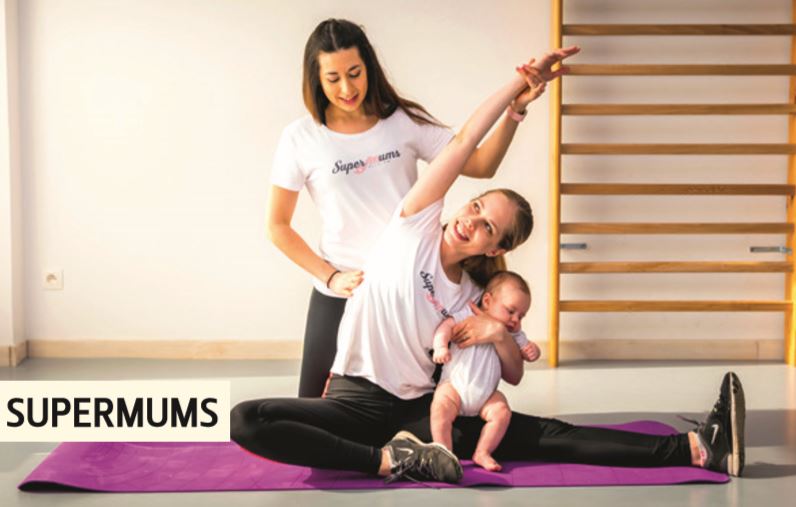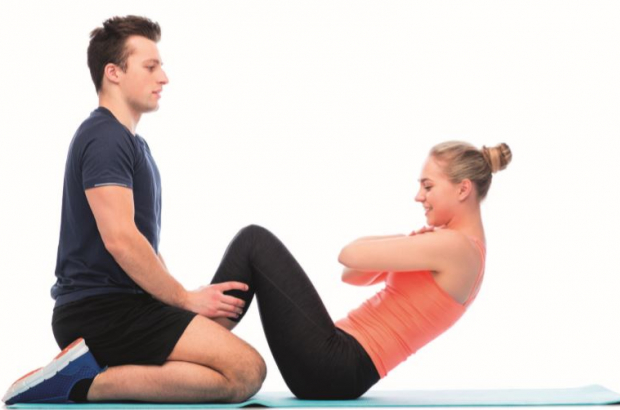- Daily & Weekly newsletters
- Buy & download The Bulletin
- Comment on our articles
Body talk: Turning to a personal trainer could be a worthwhile investment
I was afraid this might happen. Agreeing to write this article has led to me assuming the plank position on the floor of a Brussels gym, while trainer Pedro Carnicero counts down the full minute I’m supposed to remain there. Fifteen seconds in, my juddering abs feel like they could register on the Richter scale. Pride alone gets me over the finish line, but it’s not pretty.
“Yeah, you might have to work on those a bit,” he says. Carnicero is one of a team of trainers working at Paul Tucker Personal Training Studio, in central Brussels, which opened four years ago and has a mixed clientele of men, women and expats and, says the owner, is becoming more popular among Belgians. Although Tucker is a former British Army Physical Training Corps instructor, he says that, like any decent modern personal trainer, he’s not all about the ‘drop and give me 20’ for the sake of it, but believes in looking at the whole picture of a client’s lifestyle and finding where the “imbalance” is.
Next to the gym area, the consultation room looks not unlike a doctor’s surgery. Alongside scales, a height measure and a body scanner, a whiteboard covered in calculations fills one wall. “This is the science part,” says Tucker. Most clients want to either lose weight or gain muscle, and when it comes down to it there are only a few ways to achieve it, he says. “Calorie control for weight loss gives guaranteed success. This is the Taliban approach, but it works! But not everyone wants to do it and that’s fine. In terms of training, we base everything around strength training. We are holistic and scientific about it.”
After putting me through the full body scan, which checks things like percentage fat and muscle mass, and how much fat is stored around important organs, Carnicero explains that a good trainer should be just as interested in what you’re putting into your body as your activities. “With exercise we don’t burn as many calories as we think. We can’t out-exercise our diet,” he says.
Knowing how and when to train, and having the motivation to maintain it, is one reason many are drawn to the one-to-one they get with a personal trainer, which usually costs from around €60 per hour. “People are busier now and they just want to get it done,” adds Tucker.
When Spanish personal trainer Beatriz Romo was coaching children in Brussels, she noticed the mums were increasingly turning to her to ask how they could get fit themselves, and so she set up Supermums. Specialising in fitness for pregnant and post-partum women, she says there can be a “big taboo” around women talking about the problems they have post-baby, including pelvic floor, incontinence, pain and depression issues. For some newer expats, this can be compounded by the lack of a support network.

Romo runs “low-pressure” fitness classes and offers personal coaching on a case-by-case basis. “When mums say I’ve saved them and they are better than before, then I’m happy,” she says. South African personal trainer Shawn Rateau also agrees that coaching clients goes way beyond the physical.
“It’s easy to train someone really hard in the gym, but harder to deal with all the things that come with being a human being,” he says. He has increasingly concentrated on “unblocking” the issues that clients come with, which might include stress and emotional problems, unhealthy eating habits, or just wanting to “feel better in their own skin”. His work also includes a new sideline in teaching people how to ferment food, for better gut health.
When therapist Claudia Chantal Zackariya first went to Rateau for help, she’d never set foot in a gym. As a former yoga teacher, she felt she should be able to sort out her own body, but persistent tendonitis, a frozen shoulder and weight gain were grinding her down.
“There are times in life when you just need a helping hand,” she says. “I was kind of sceptical about personal trainers and gyms. But none of the usual things – like the doctor, osteopath or acupuncturist – were working. I needed someone who understood how to work with me as a whole person.”
She found Rateau, who was then working at health and fitness club Aspria and now works out of his own studio. “There’s a lot of focus on stretching. He’s very good at reading issues with the body and understands how the physical links to the emotional. And it worked. I lost 20kg, and my tendonitis and frozen shoulder went. It has been completely life-changing. I’ve actually saved a lot of money and energy. For me, that’s an investment.”

Find your fitness
Listings
Directory of trainers in Brussels, plus advice on how to choose one.
Paul Tucker
Based near Parc metro in the city centre and set up by a former British Army instructor.
Supermums
Specialised fitness classes for pregnant and post-partum women at two locations in Ixelles.
Shawn Rateau
Personal training with a coach who’s branched out into advising on gut health.
Aspria
Upscale group of health clubs with three branches in Brussels.
This article first appeared in The Bulletin summer 2019. Photo: Shutterstock/Syda Productions

















